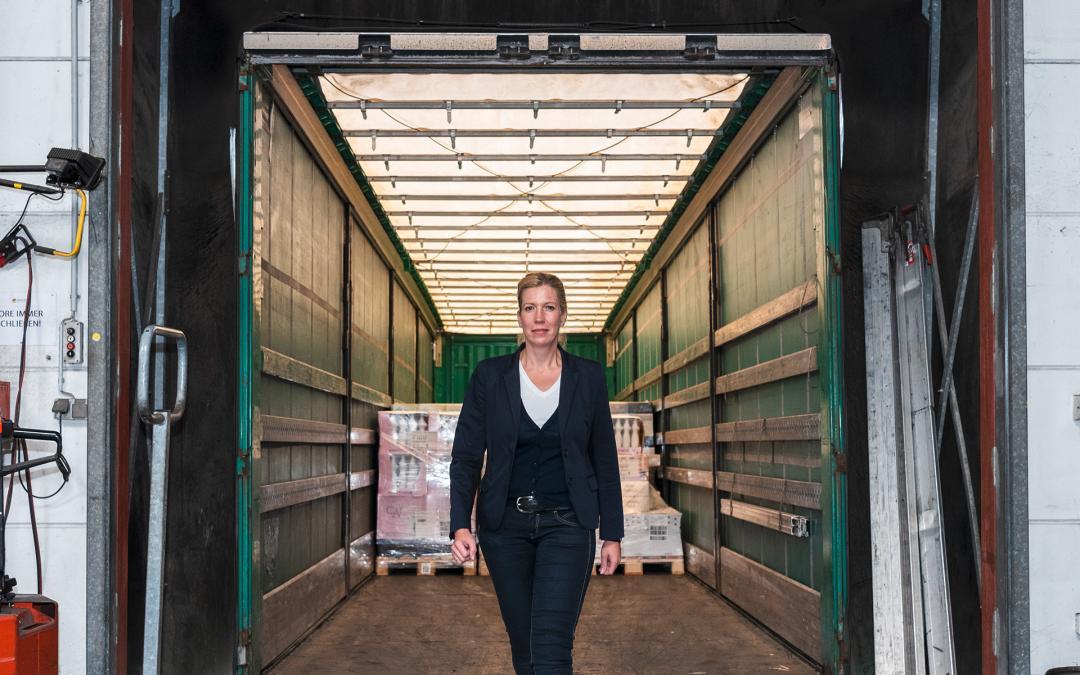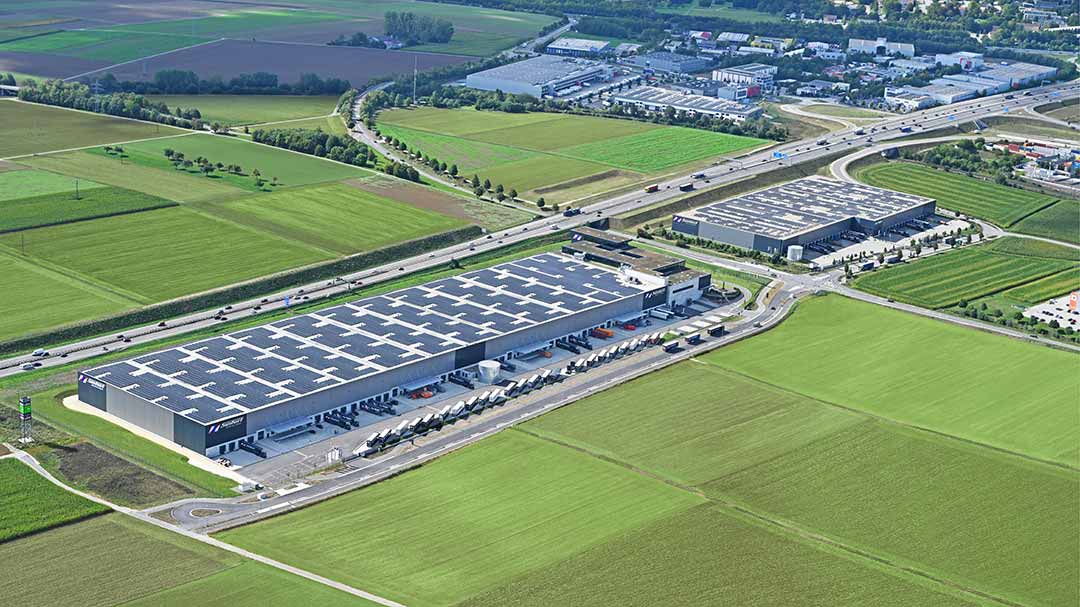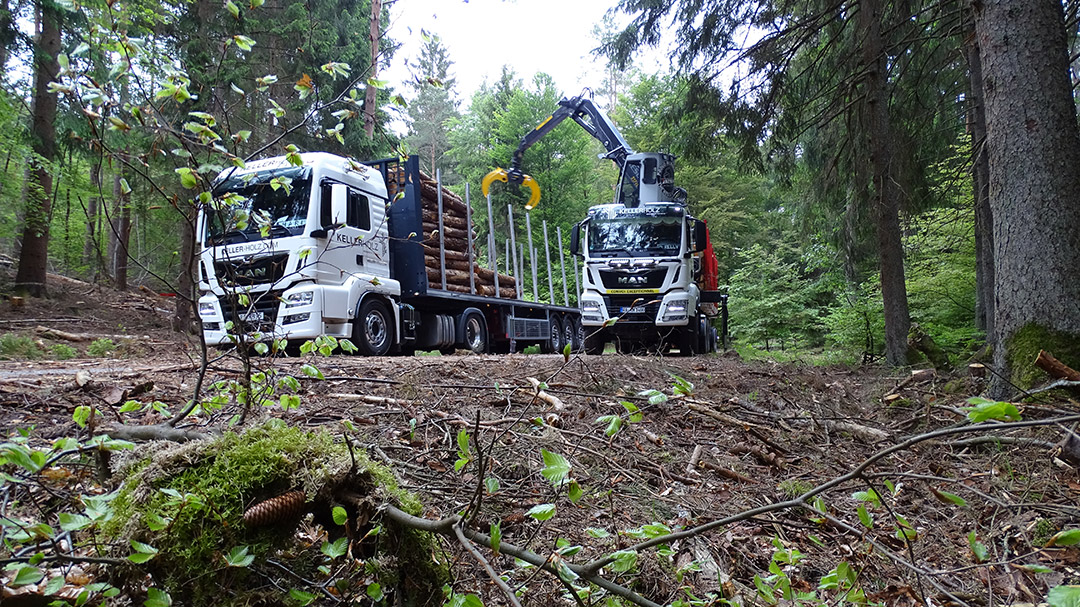Reading time: approx. 5 minutes
Text: Michi Jo Standl
Photos: Jennifer Zumbusch
In Germany, around 20.5 litres of wine were consumed per person in 2018. Regional wines are growing in popularity. According to the latest GfK wine market analysis, food retailers sold 6.1 per cent more locally grown wine in the first half of the year than in the same period in 2018 – a positive development for the wine logistics sector. But what challenges does the industry face?
Wine logistics is a sector poised between holding to tradition and staying relevant in the future. ‘I actually didn’t want to go into the industry; it just turned out that way,’ she continues. Her great-grandfather, Johann Müller, founded the business in 1935 as a transport company. In its current incarnation as a limited company, the business has grown into a modern logistics partner. The company is not the only one in the region to specialise in wine logistics. ‘We have a good relationship with our competitors, and sometimes we help each other out,’ says the logistics boss, happily.
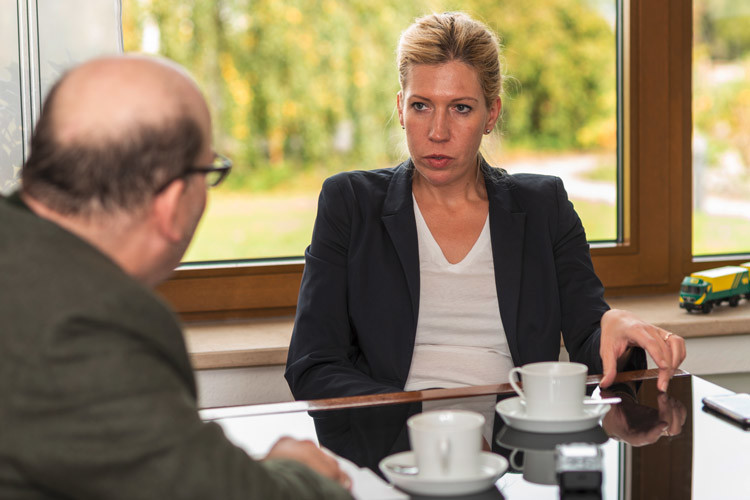

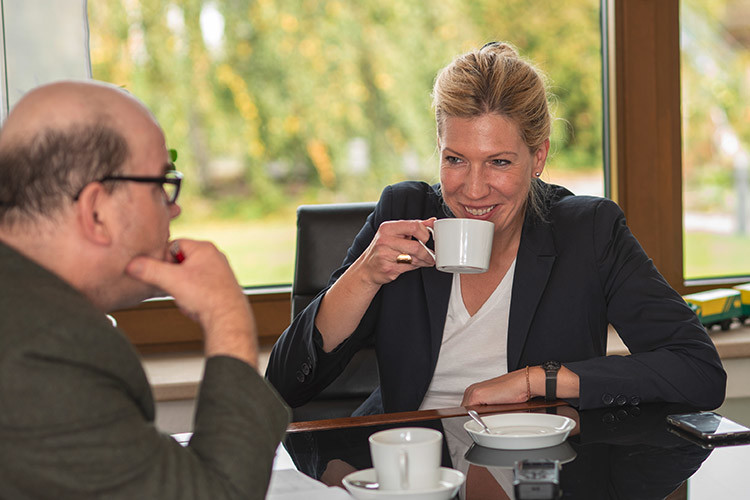
The Saar-Mosel-Ruwer region
The Saar-Mosel-Ruwer winegrowing region stretches from Saarland to Rhineland-Palatinate, where the largest cultivation areas are found. The Saar and Ruwer are tributaries of the River Mosel. Steep slopes are characteristic for the region, which consists of six cultivation areas. Calmont is home to Europe’s steepest vineyard, with a gradient of 100 per cent.
Number of winegrowers
Total area of wine cultivation
hectares
Number of vines around
million
Average wine production
hectolitres per year
Source: Moselwein e. V.
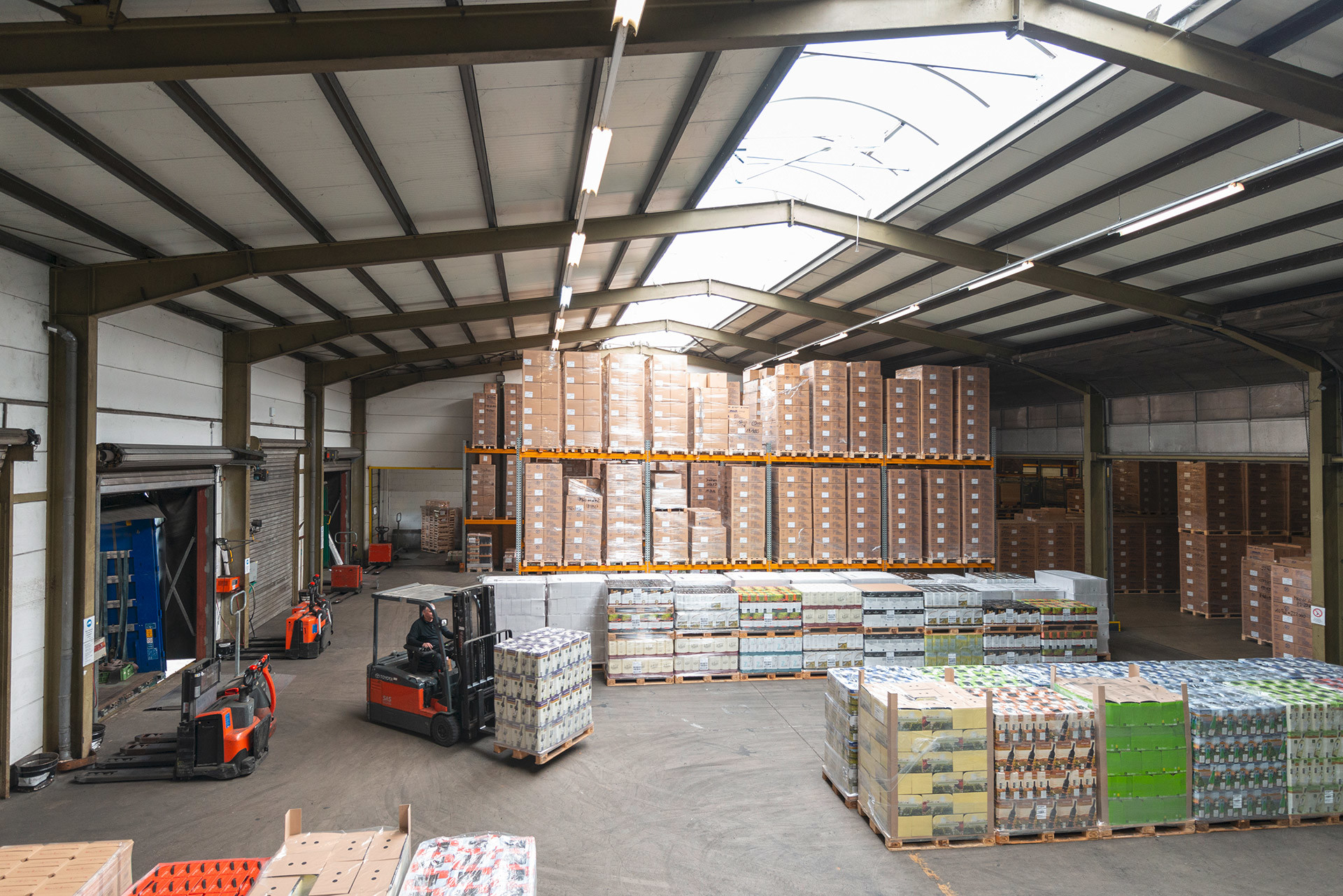
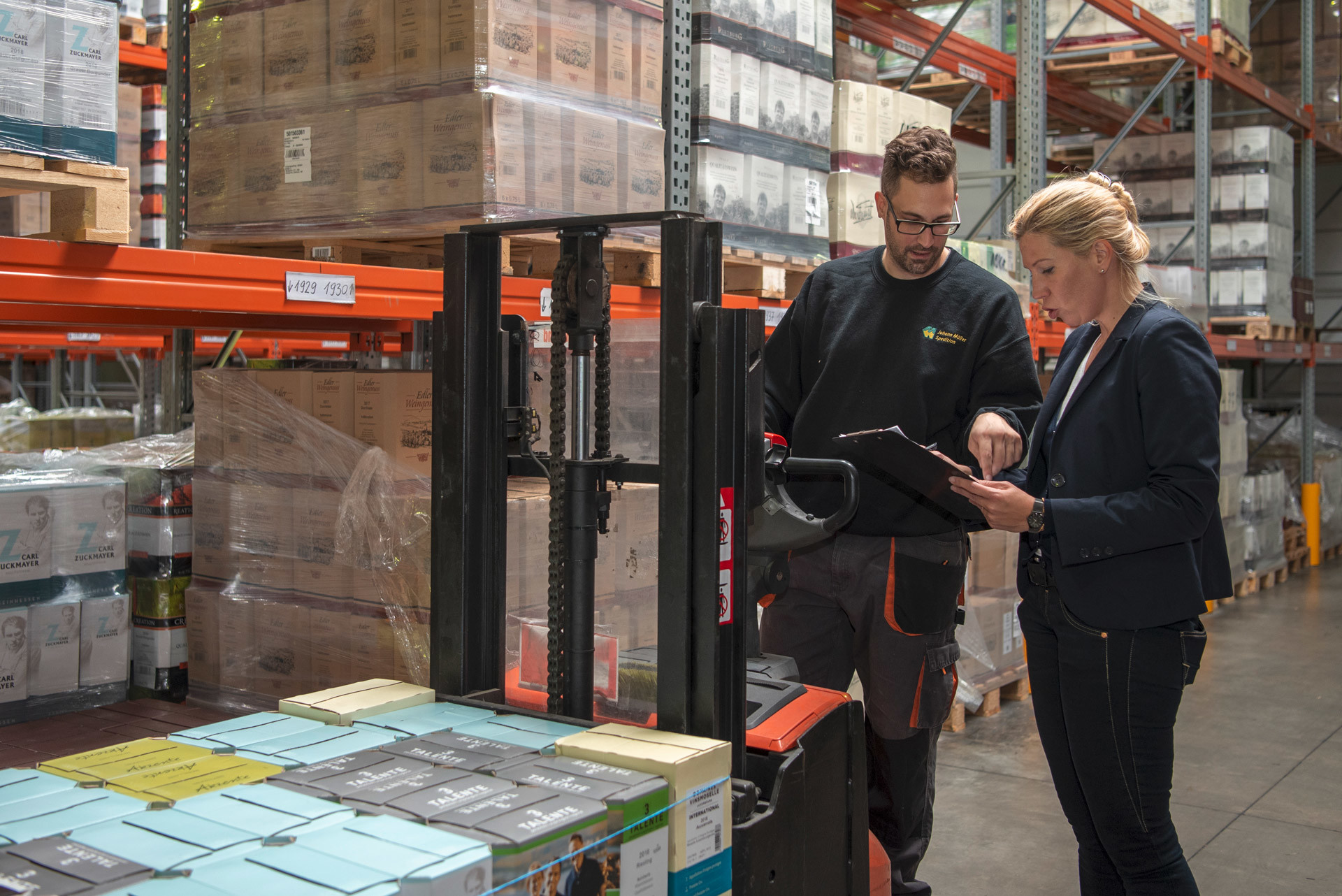
A logistics all-rounder for the wine industry
The haulage company Johann Müller is in charge of the entire flow of goods for wine products – from the producer to the consumer, as well as to the winegrower. It supplies the latter with accessories such as hollow glassware, boxes and seals. Hartje sums up the company’s activities thus: ‘We’re a logistics all-rounder for the wine industry.’ In autumn, the haulage company manages around 50 pick-up points in the Mosel, Palatinate and Rheinhessen wine regions on behalf of wineries and winegrowers’ associations. These include collection points, where many winegrowers bring their products.
The company’s activity is in two main areas. Drivers pick up the goods, i.e. filled bottles, from vintners using semi-trailers, and take them straight to retail chains’ central storage warehouses. Although supplying larger culinary and hotel establishments isn’t part of the company’s core business, it does come up from time to time. ‘As this involves smaller quantities, we work with subcontractors in that sector,’ says Hartje. Customers also benefit from 3,500 pallet spaces in around 2,500 square metres of storage space. A further 6,000 square metres are planned. This includes a consignment warehouse and a handling area. The haulage company also operates external warehouses within the logistics supply chain.
The second area of activity is the transportation of stainless-steel tanks containing wine and must to wine cellars, where the contents are decanted into bottles, cans and bags-in-boxes. There are 14 BDF equipment units – trailers and swap bodies for MAN traction units – and three tank trailers on hand for this purpose. The tanks can be split into different chambers. This makes it possible to transport several different varieties of wine in a single load. Food storage tanks can be used flexibly and at short notice simply by repositioning.
Dealing with driver shortages
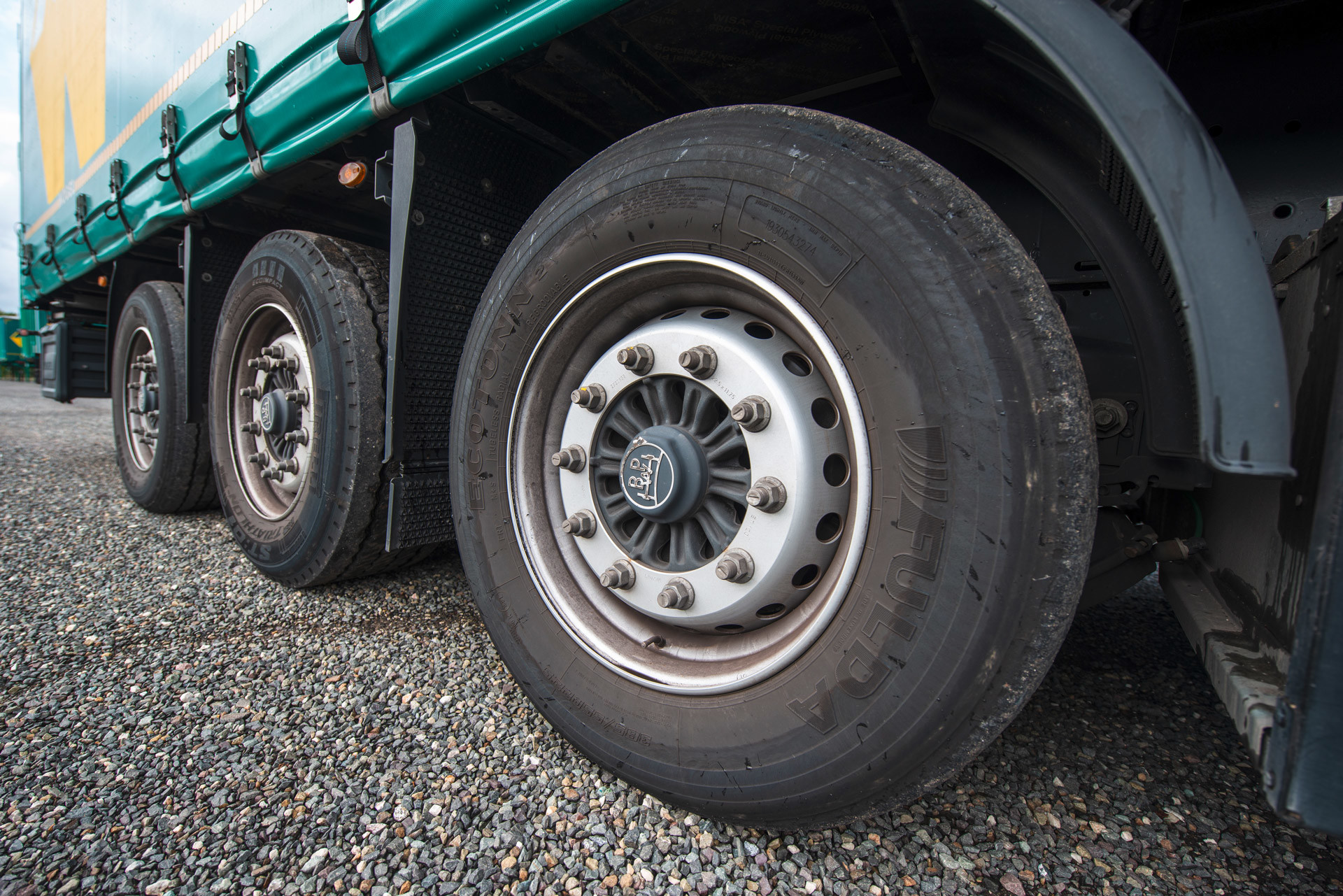
Climate change impacts wine logistics
Another major issue is climate change. ‘Naturally, I’m looking at the future of mobility, i.e. alternative engines,’ Hartje goes on. ‘But for major traction units, there just aren’t any viable solutions yet. It’s all still just theory.’ However, she has to deal practically with the specific product being transported: wine. After all, while finished wine is transported all year road, the must made from freshly squeezed grapes is only transported in autumn. Riesling grapes prefer cooler environments. When it is warm for longer periods, planned shipments can be delayed. ‘This means we need to be flexible,’ says Hartje. Then there are the fluctuating weather conditions: sudden heavy rain damages the vines just as much as dry conditions. This can also lead to delays or even crop failures. Steady, consistent rain, which ensures a balanced water supply for plants, is increasingly rare due to climate change. Scientists and agricultural authorities are tackling the issue. In a recent study, Hochschule Geisenheim University investigated the impact of climate change on wine cultivation. The Thünen Institute in Braunschweig, an institution of the Federal Ministry of the Environment, is also conducting research in this field. The results benefit winegrowers and wine logistics specialists alike. ‘We’ve prepared for this and I feel we’re set up well for the future when it comes to these challenges,’ explains Hartje.

